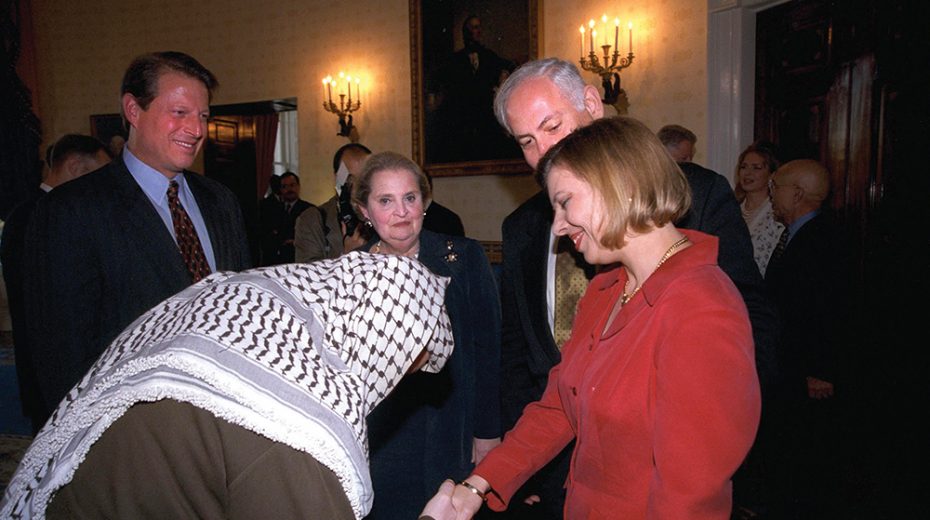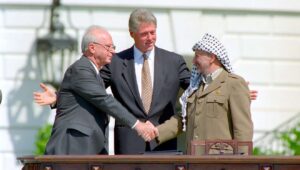Signed in September 1993 by Yasser Arafat and Yitzhak Rabin, the agreement established the Palestinian Authority and recognized the PLO (Palestine Liberation Organization) as the leadership of the Palestinian people.
Was Oslo a failure? Or, do we have it to thank for the situation today, which can be considered the most stable and economically-successful that Israel has yet known? Those Israelis behind the agreement had believed it would lead to widespread prosperity and a genuine peace. Others warned that it was a Trojan horse. Euphoria prevailed in the beginning, but after only a few weeks we understood what a mistake Israel had made.
According to a survey conducted on the 25th anniversary of the signing of the Oslo accords on the White House lawn, 68 percent of Israelis believe that the peace process it spawned has utterly failed. More than that, 67 percent of Israelis now feel that the “land for peace” formula that forms the basis of the accords is no longer viable. The study was presented to the Knesset by Gregg Roman of the Middle East Forum. It further showed that as much as 59 percent of left-wing Israelis, those most supportive of the accords initially, are today disappointed with the Oslo peace process. None other than famed Israeli author and Israel Prize laureate A.B. Yehoshua, a leading advocate of the two-state solution, now admits that Arafat had misled the world. Top commentator and Middle East expert Ehud Ya’ari said the fundamental mistake all along had been trusting Arafat and the PLO: “Rabin had wanted to give the Palestinians an ultimatum because Arafat was not adhering to the agreements. But then Rabin was murdered, and his successor, Shimon Peres, did nothing.” From the Palestinian point of view, it was Israel that failed to comply by not clearing out all Jews from 98 percent of the so-called “occupied territories.” This, Israel argued, was never possible because Arafat had fundamentally failed to halt anti-Israel terrorist violence.
I was there when the convoy of Jordanian vehicles ferrying the Palestinian leadership across the Allenby Bridge approached Jericho. Before crossing the border, Israel had permitted the Palestinian forces to carry machine guns, but without ammunition. The PLO had insisted on it. They wanted to appear as armed heroes retaking Jericho. They had promised to use those weapons to combat terrorism, but that didn’t happen. Instead, those very same guns were later turned on Israeli citizens. In the 15 years prior to the Oslo accords (1978-1993), official sources record that 270 Israelis were killed by Palestinian terrorists. In the 15 years following the signing of the accords (1993-2008), 1,450 Israelis were killed, a fivefold increase. On the Palestinian side, too, the death toll rose, especially after the unilateral evacuation of the Gaza Strip in the summer of 2005. The Oslo process has failed, and that’s why there’s been a shift to the right in Israel. The nation’s left-wing has little-to-no chance of returning to power at present. Their promises of a “new Middle East” as a result of the Oslo accords have returned void. What remains are people weary of conflict, on both the Israeli and Palestinian sides.















